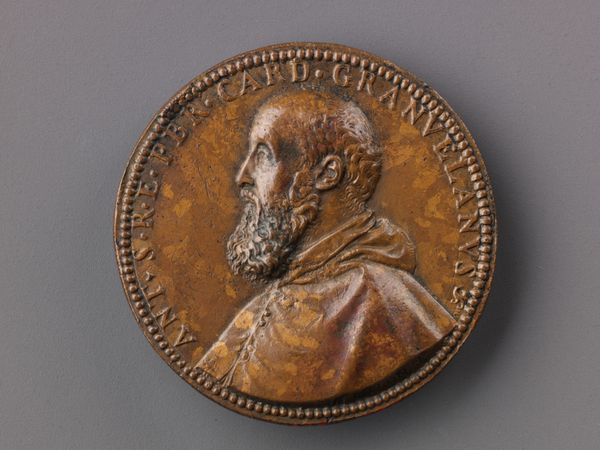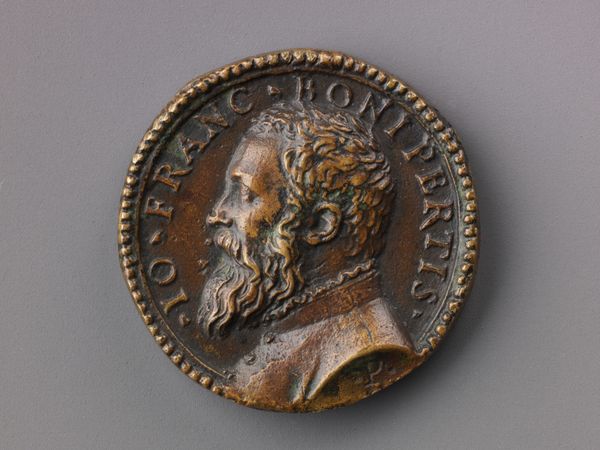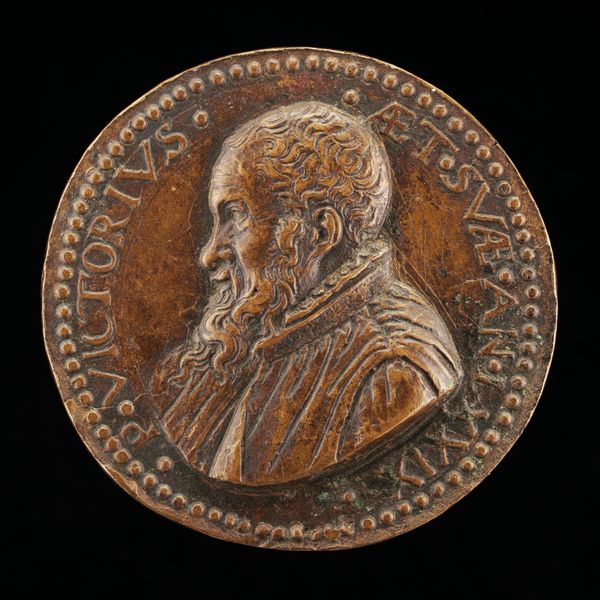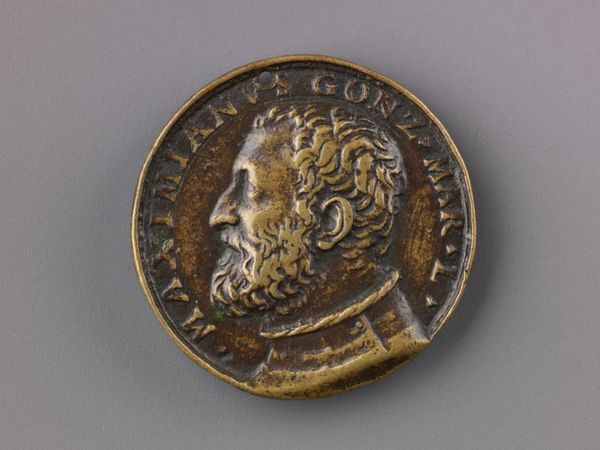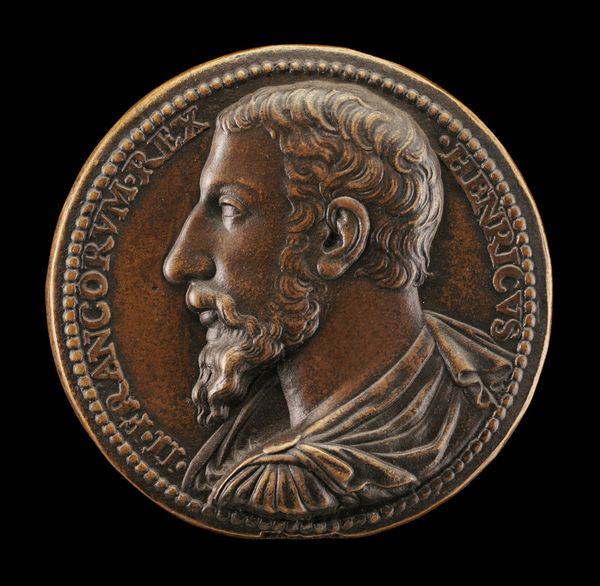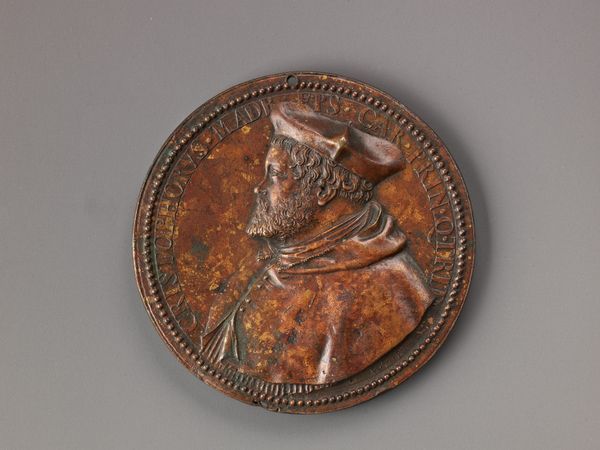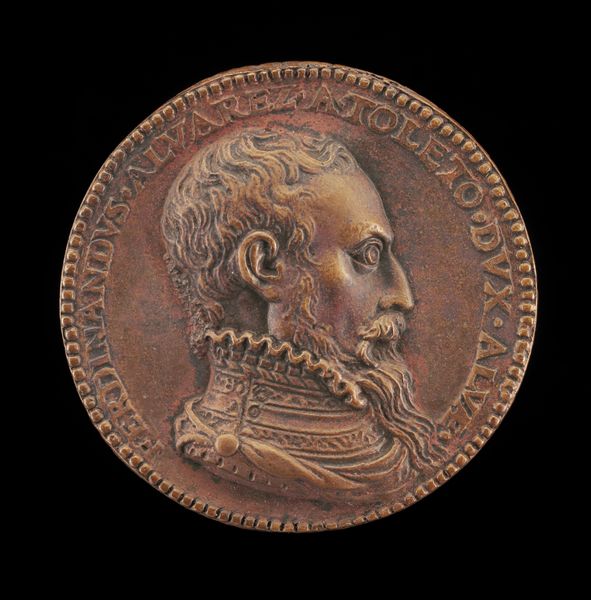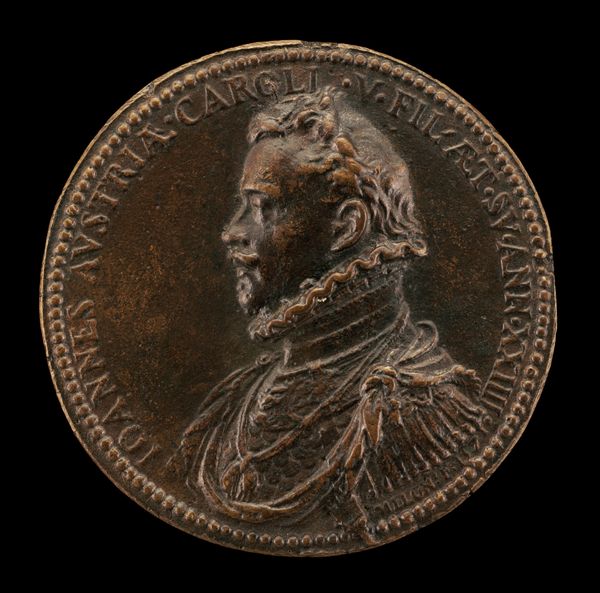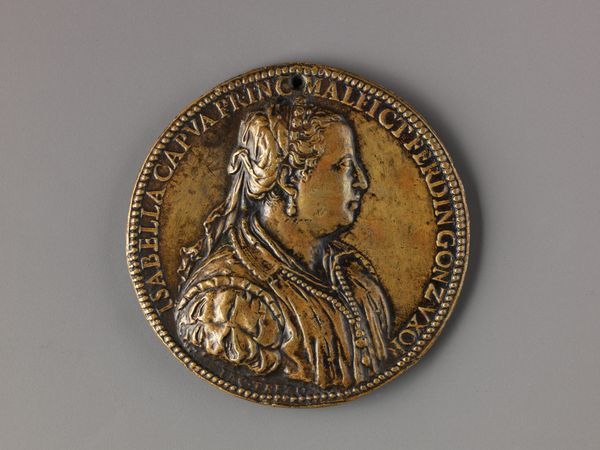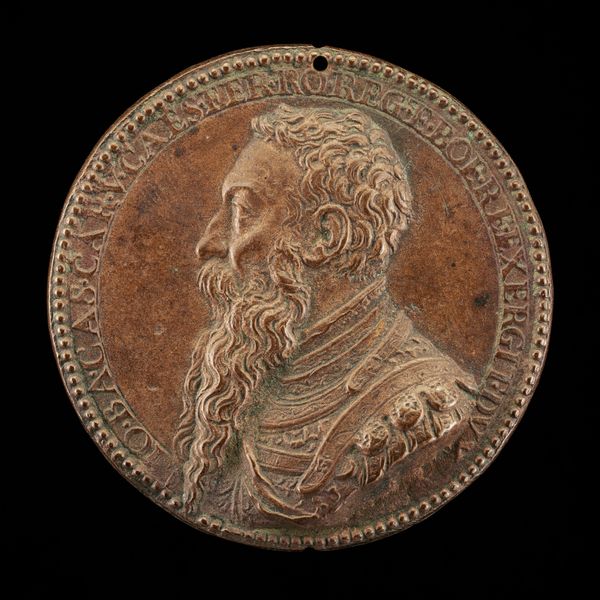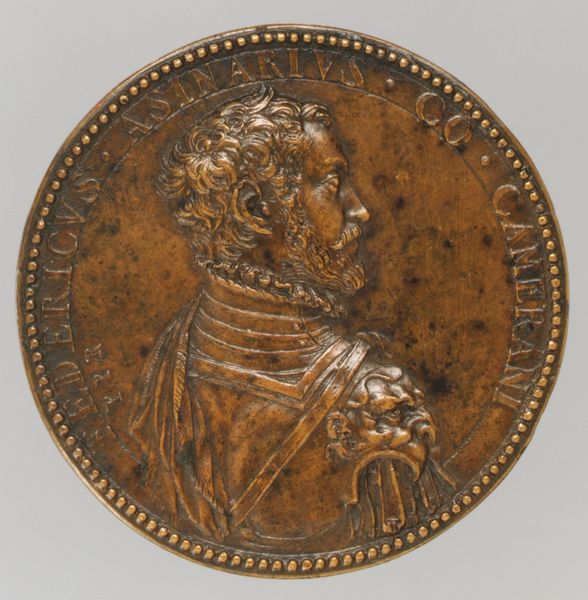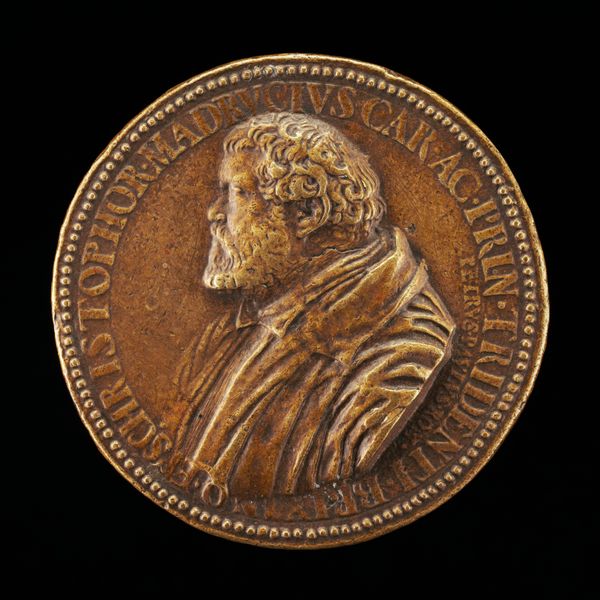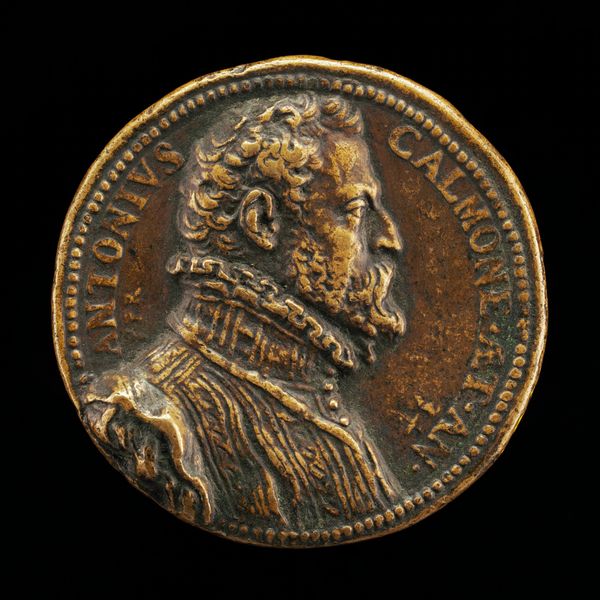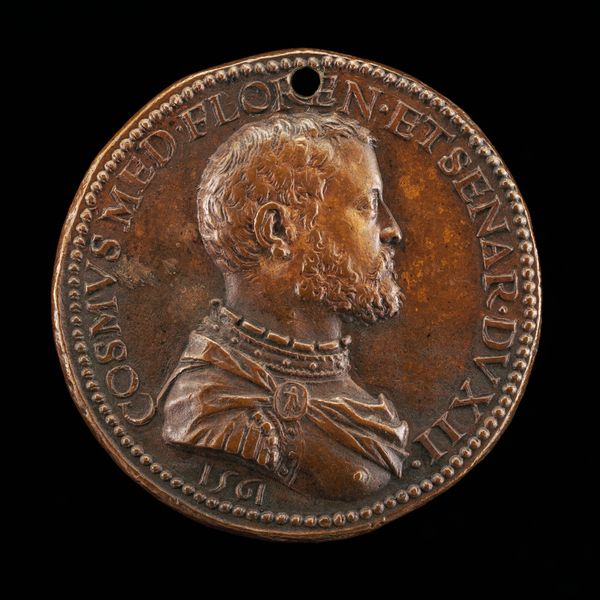
Portrait medal of Cardinal Alessandro Farnese (obverse); Il Gesù (reverse) 1575
0:00
0:00
metal, bronze, sculpture
#
portrait
#
medal
#
metal
#
sculpture
#
bronze
#
sculpture
#
men
#
history-painting
#
italian-renaissance
#
profile
Dimensions: Diam. 4.7 cm, wt. 34.51 g.
Copyright: Public Domain
Curator: Let’s examine this portrait medal of Cardinal Alessandro Farnese. It dates back to 1575 and the piece is expertly crafted in bronze. Editor: It's so detailed for such a small object. It really speaks to the power and influence the Cardinal held. How does the material, bronze, inform its meaning? Curator: The choice of bronze isn't arbitrary. Consider bronze's historical association with power, commemoration, and permanence. Casting bronze was also a highly specialized and controlled practice in the 16th century. It speaks to patronage. Someone commissioned this; it speaks of production and value of a type tied to display of status and nobility through craft. The medal literally embodies Cardinal Farnese’s power. Look closely, how is the inscription a key to social status? Editor: I see...The inscription clearly indicates the Cardinal’s name and status, linking his identity to this meticulously crafted object. But does the backside image change the focus? Curator: Ah, good eye. The reverse depicts the Il Gesù, which again requires specialized skill for its minute perfection. The act of creating these medals, the labor, the bronze, the message: they all converge. Can high art also be craft in its need to communicate an idea? Does it transcend typical views on luxury if this had a specific message meant to persuade? Editor: So it moves beyond pure aesthetic appreciation and more into understanding the means of its creation and purpose. It makes me consider labor implications. It highlights status through a production process of skilled makers as well as through recognizable cultural symbols such as the Il Gesù. Curator: Precisely. Thinking about materiality challenges those high art and craft boundaries. It prompts critical thought regarding economic and labor practices, in how artwork communicates an intent beyond beauty. Editor: Thanks, that really gave me another angle on interpreting it. I learned how looking at material and artistic work brings the historical environment of power into focus. Curator: My pleasure! It is crucial to delve into the layers of labor, method, and raw stuff and what each process communicates beyond appearances.
Comments
No comments
Be the first to comment and join the conversation on the ultimate creative platform.
